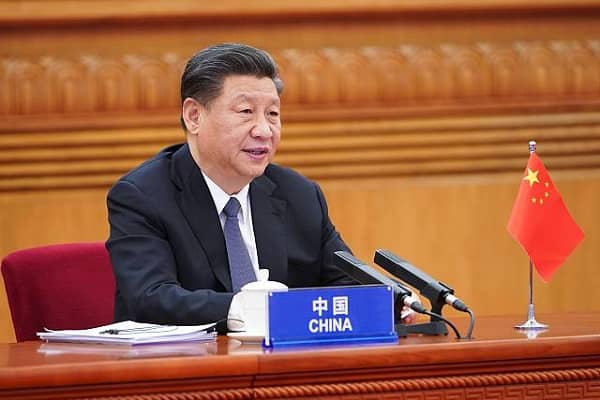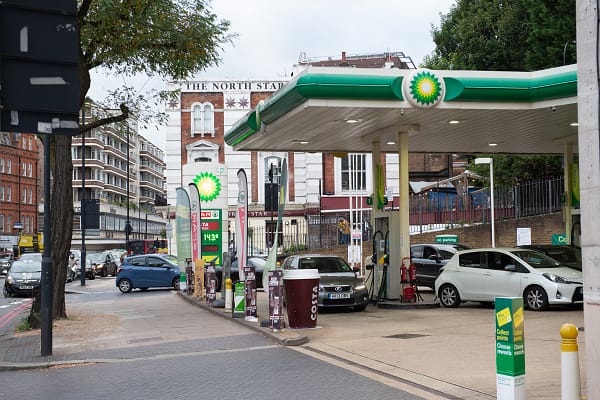Why the Green Party’s mayoral candidate is unimpressed with her rivals
“Is that the book you’re reading?” Siân Berry asks me as she sits down opposite me with a massive cup of coffee.
“Yes,” I reply.
“Cool. How far are you in with it?” she asks with interest.
The book I’ve left on the table is The Handmaid’s Tale by Margaret Atwood, a dystopian novel set in an alternate reality where women’s freedoms have been severely curtailed by an authoritarian religious regime. She obviously approves of me reading it.
“If you’re a woman, it’s truly terrifying – the speed at which their rights are taken away. It’s a very feminist book,” she says.
I suggest to her that there is a growing interest in dystopia in popular culture.
She nods. “Well there are such a lot of broken things at the moment… There are loads of ways of things going wrong and people are worried at the moment. Not everything seems very stable.”
So can Berry convince Londoners that she is capable of putting things right in the capital?
She is stepping into the ring for a second go at reaching City Hall for the Green Party, though it is not her second consecutive attempt. At the 2012 London mayoral election Baroness Jenny Jones took the Green Party to third place, overtaking the Liberal Democrats who were left trailing in fourth.
Berry aims to build on this momentum, but she is realistic about her prospects.
“I’ve got to beat [Lib Dem candidate] Caroline Pidgeon – that’s the absolute minimum requirement,” she says. “I need to get as close as possible to the top two, because then the second preferences come and we do very well out of those.”
Tough competition
Berry believes she can compete with the candidates (and the resources) being put forward by the Conservatives and the Labour Party.
She is unimpressed by both Zac Goldsmith and Sadiq Khan.
“Both of them are less experienced than me at fighting tough elections,” she says, “and also on the management side of being London mayor, the detail of how London works. It’s quite a complex machine. You can’t just breeze in with a few soundbites. You actually have to know how transport works. If you don’t, you’ll end up making gaffes like Zac Goldsmith did when he said ‘perhaps we can do without bus lanes’. No! Of course we can’t!”
Her tactics are to do as much ahead of the election as possible.
“I think the more we can do early-on, as Greens, to fight our way into the horrible two-horse race business that everyone seems to focus on, the more we do better.”

Siân Berry during her 2008 mayoral campaign
Transport
Transport is the crucial area of responsibility for the mayor with about 70% of the mayoral budget going on managing, designing and upgrading London’s transport system.
When asked, this is the first area Berry highlights where she believes Goldsmith and Khan are falling short.
“I’m really worried about cycling. That’s an important thing, not just for cyclists, but as a way of cleaning up our air, and reducing congestion.
“A lot of us are women and just want to feel safer on the roads and still feel like we’re able to cycle when we’re older and that our children can cycle.
“They [Khan and Goldsmith] have both made comments that are really worrying actually. They seem to be making signals towards the motoring lobby.
Berry knows exactly what she would do to encourage cycling, which she wants to push up to 10% of all journeys in London.
Of the superhighways championed by Boris, she says “they’re controversial, but we’re all behind those, they are fantastic things.”
But she is more concerned with less eye-catching improvements.
“We need to be tackling the short journeys to give people the option of getting to their local town centres. And the programme of funding for that is kind of under threat at the moment.
“I’m not seeing any strong commitments from any of the other candidates to continue that,” she adds.
Building bridges
One of the most eye-catching policy differences between her and Khan and Goldsmith is that Berry opposes the Garden Bridge.
“I’m really against it. The funding is outrageous. Transport money from central government and from TfL [Transport for London] is going into it,” she says.
“Half of the infrastructure and footprint of it is not garden. It’s all other stuff. It’s still a massive opportunity for us with all the other things you could spend the money on.”
House party
Away from transport, the issue dominating the mayoral race is London’s problem-laden housing market.
Berry says Goldsmith’s solution to the problem of building more houses doesn’t go far enough.
House building, she says, is “vital”, but she says further controls are needed.
“Demand for housing in London as investment properties is more or less infinite,” she says. “If you’re building flats and flats and flats, they’d all sell, prices would keep going up.
“You’ve also got to do other things to control the tenure, to control income by it, what kind of leases they get, and to control rents ideally.”
It sounds like a tough ask with a Conservative government, I suggest.
“They are out of control!” Berry responds. “Even lawyers and accountants are paying half of their salaries in rent, which is way above the affordable definition. And something has to be done about affordable rent and accommodation. I don’t think there’s that much of a difficult door to push open to get rent controls for London because it’s justified.”
How do you plan to stop a private landlord from charging what they want, I ask.
“Many other cities do it and there are different models. In Berlin they brought in a rule where with tenancies you’re only allowed to increase it within 10% of the local market average. So that just keeps a cap on the increase. And I think you should have a percentage increase cap between and within tenancies. This would allow wages can catch up a bit because they have got way behind.”
Green Party on the greenbelt
Where Goldsmith is wholly opposed to any building on London’s greenbelt areas, Berry is slightly more open to debate over reclassifying certain areas that aren’t really green.
“It’s obviously a case by case basis,” she says, after a moment’s hesitation. “You’d have to make a very good case for declassifying parts of the greenbelt. The whole point of it is to provide breathing space for London and to provide high quality bits of countryside to within easy reach of people who live in London.”
“Where there’re areas that are not high quality, if you were to trade that off by classifying something else that is high quality, without breaking the principle, then you might do it, but I don’t like the idea of relaxing the principles of the green belt, because it is a very important thing.”
In any case, her priority would be to encourage regeneration in existing areas in London.
“We’ve got an awful lot of brownfield land to get through and there’s an awful lot of densification we can do. Keeping the city compact and not turning it into Los Angeles is what the Greenbelt is there for.”
Taxi row
One of the areas of concern for all candidates is what to do about Uber and the surge in minicab licences. Berry’s attitude to cars is that there should be fewer altogether, though she is supportive of London’s black cabs.
“We have to have a target for traffic reduction because otherwise the city’s going to grind to a halt and we’re going to be swimming in pollution for years to come,” she says.
“Traffic on the roads is going up, and you have to worry whether that is a little bit to do with Uber. There’s evidence in New York that not only is Uber taking money away from other cab operators, it’s also increasing the number of journeys by car overall because people are not going on public transport. In London we can’t have that happening.
“Also, it’s bad for the black cabs. A bit of competition for them is probably good, but you don’t want them to disappear because they are a very good, high quality, very well-regulated service. People see them as a bit of a life-line and a safety net.”
Mean green fighting machine?
The dominance of the Labour and Conservative parties means that Berry will do well to earn over 5% of the vote. But nonetheless, as one of the top candidates in the election, she is included in public debates and she wields a significant amount of power – the power to make Khan and Goldsmith look foolish, ill-informed or illogical, and the power to form the agenda to some degree.
Her frank delivery and relatively straightforward vision for a greener London is an attractive prospect and her running mates would do well to look at what she is doing.
Now read:

Bye Bye God Save The Queen? MPs to vote on new National Anthem for England

The £1bn “Skinny Shard”: Why is this London skyscraper getting so much hate?

2015 was the biggest year for protest since the 1970s – here’s why

Landlords rejoice as government votes down rule requiring them to provide homes fit for human habitation






Leave a Comment